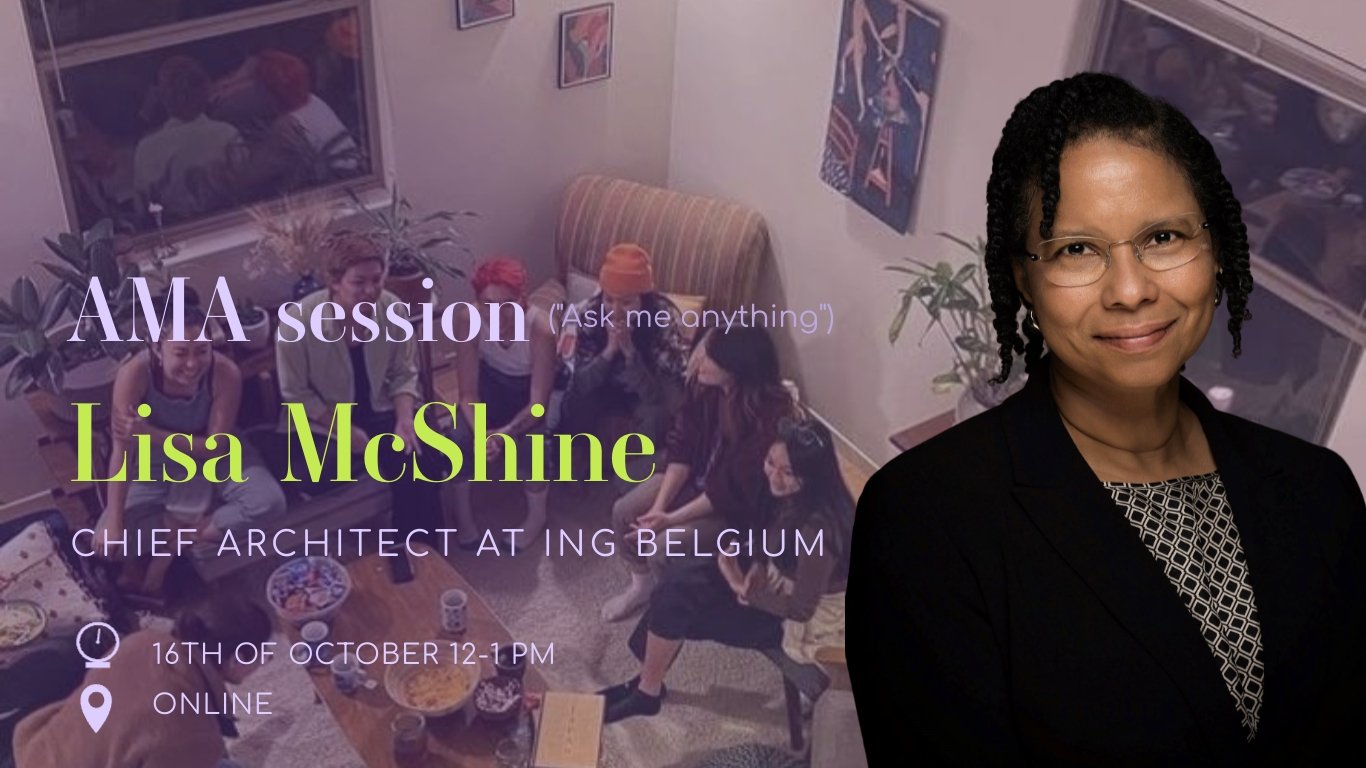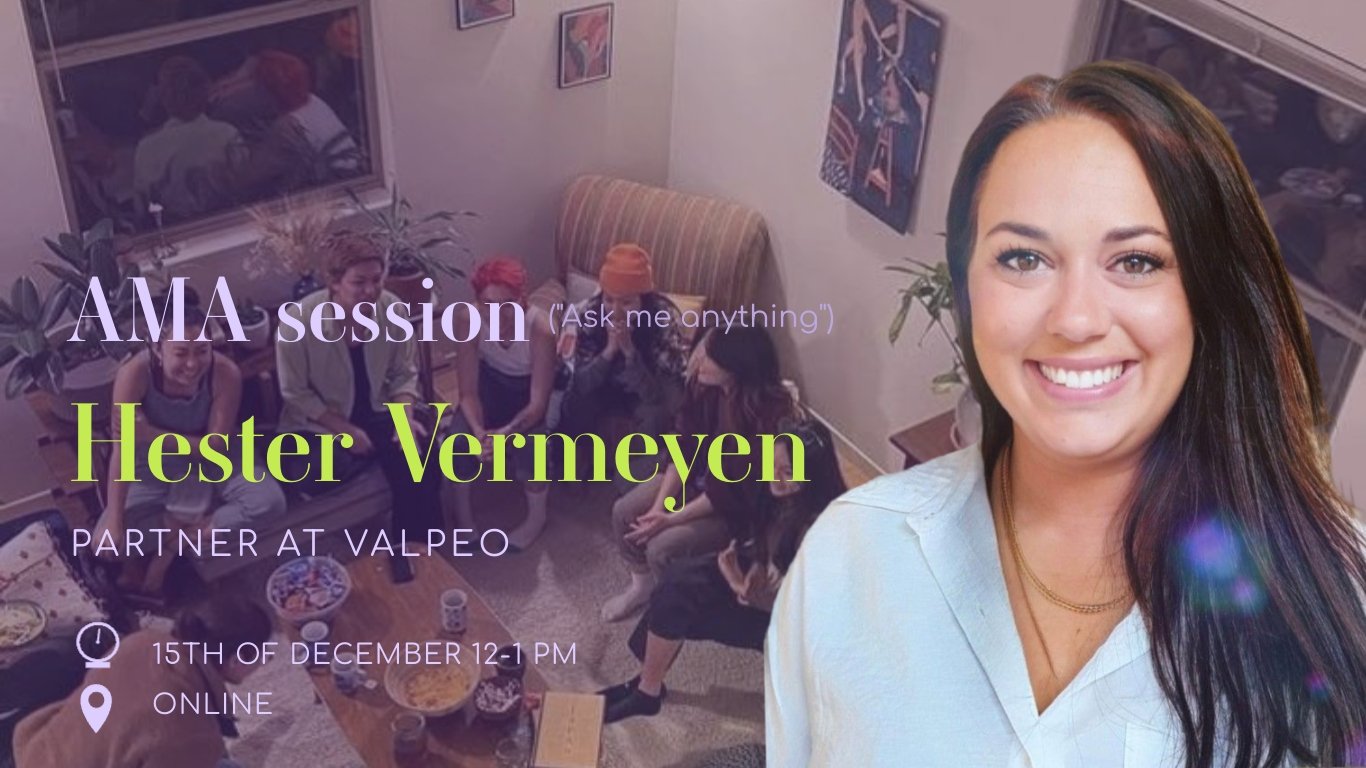Bloom: Aqsa Intizar
Competitive judoka, Mendix engineer and dog savant are roles that the young Aqsa Intizar seamlessly strings together. Like her evocative name, Aqsa Intizar from Buggenhout is far from an average programmer. Read her story below! 👇🏽
Judo & low-code
Like her evocative name, Buggenhout-based Aqsa Intizar is far from being an average programmer. During the day, she trades in her judo mat for low-coding at Apvine and in between, Aqsa picks up her heart in Romania, where she volunteers to rescue traumatized dogs and look for the ideal adoptive candidates with a warm nest. Still only 22 and barely a year into her career, Aqsa knows how to combine several passions. Competitive judoka, Mendix engineer and dog rescuer are roles that fit her like a glove and with which she is resolutely working.
There is always a bit of uncertainty because you don't know anything about it yet'.
We want to know how Aqsa ended up in the tech world:
Through my father and my brother, my father is an Oracle expert and my brother is always working with IT. I wasn't really interested in my studies in secondary school. The choice between IT and the healthcare sector was easily made. There is always some uncertainty because you don't know anything about it yet.
Did it fit in with your secondary studies?
No, I actually studied photography first. It seemed fun, but it was too artistic for me and less technical than I thought. When I was convinced that a photo was aesthetically beautiful, it turned out not to be, and technically less successful photos were beautiful again. The logic was a bit lost. In a flash, she decided to follow in her father's footsteps and leave art for an IT-oriented education. Interactive multimedia design is the name of the course she chose.
Did you miss the application of logic then?
For me, it has to be challenging enough; I like it when it takes more effort. The study program was a mix of design and development, and I mainly went for development subjects. Making or building something that works gives me much more satisfaction.
Only twelve students were selected from a pool of sixty. I was glad that I was allowed to join as a developer, because it was not that obvious.
Do you see that as a positively confirmed tryout?
Absolutely! I went through my studies quite smoothly and learned a lot. We could also aspire to a project through Designosource, a company at school that we had to apply to. Only twelve students were selected from a pool of sixty. I was glad that I was allowed to join as a developer, because it was not that obvious. The aim was to build websites for clients, and apart from programming, we also had other responsibilities such as administration, writing price quotes, organizing and attending meetings, maintaining client contacts, etc. The administration was so much less my thing (I was not a developer). The administration was so much less my thing'.
That was the ideal way for you to experience what it is like in practice?
Indeed. Moreover, we didn't have to hand in our final work if we managed to complete the project successfully. The satisfaction is great then.
From student to professional
And after your studies, did you start applying for jobs immediately?
My dad encouraged me to get started as soon as possible. Especially because of corona, he thought it wouldn't be easy. I found a job posting through Indeed that appealed to me, so I applied straight away, which resulted in a very nice interview. I could start immediately.
What appealed to you in the vacancy because you are a programmer and you work with low-code now?
It was Apvine 's candidate-centered approach in particular that caught Aqsa's attention. The vacancy spoke mainly about how they can help people grow in what they enjoy doing in a pleasant, stimulating environment, rather than about job requirements. Aqsa also saw similarities with the agile way of working at Designosource.
... the vacancy reflected the atmosphere of happy employees who share knowledge and enjoy their work'.
Is it the employer branding and the open social company culture that attracted you most?
The vacancy reflected the atmosphere of happy employees who share knowledge and enjoy their work. The interview lasted two hours and it clicked immediately because we also shared sports interests and discussed how they could help me to grow.'
Are you not afraid to learn programming a bit now that you are a Mendix engineer?
Low-code is unbelievably good and more flexible than I initially thought; it surprised me how much you could still change and add to it yourself. Moreover, as a self-employed person in a secondary occupation, I occasionally take on small projects in order to keep programming and I regularly refresh or update my knowledge.
What are you doing now and how is it going?
It's very project-dependent, sometimes I work on an application and sometimes I'm busy with design. At Apvine, we work on everything to do with low-code applications for a broad clientele, ranging from a factory to the FPS (Federal Public Service). We have grown quickly: Apvine has been in existence for just over a year, I was the fourth person to be recruited, and now there are twelve or thirteen of us.
How many women work at Apvine?
We are two, Tine is more of a business analyst, they definitely want to recruit more female IT staff. When I was a student there were three of us out of twenty, so I see the same ratio in working life.
Rescuing dogs
You are still young, 22? You played sports intensively and were on stage regularly? What are you most proud of?
As far as judo is concerned, I am very strict with myself and therefore not easily satisfied. What I am very proud of is my work as a volunteer for Adopted Lovers VZW, a foundation that rescues Romanian dogs for whom we are looking for a new home. That gives me a warm feeling. I came into contact with it through my adopted dog. We mainly do administration here. Soon I will leave for Romania myself to help there.
You are a judoka at national level and you have regularly stood on the podium at championships?
Aqsa is a bit more modest about that. 'Yes, I train every day and am working on it a lot, as I said, I am not easily satisfied.'
The bar is high?
I won't make a career out of it, but I set myself a minimum. I have been practicing judo since I was seven years old.'
Speed and standstill
What are your biggest challenges?
'Patience,' she replies, immediately smiling. Ironic, given that her Arabic-sounding family name 'Intizar' means waiting or anticipating. The tension between the dynamic explosive and the controlled in martial arts typifies her a little. She would like to find more balance. Patience is something I really lack, everything has to go fast and smoothly. If a certain technique in judo doesn't work out, it frustrates me because I can't make any progress. Then I have to go for a walk or something, my coach knows it's best to leave me alone (laughs). I would like to be able to look at the problem calmly and from there start to improve things or think of solutions.
Is it to do with competitiveness?
'Yes, it has to be quick and smooth, I don't want to dwell on things for too long.'
I am stubborn in not being stubborn.
Then Mendix is the right place for you because it is faster?
Indeed, I have to be careful not to go over too fast. I am stubborn about not being stubborn.
Do you have a plan of action?
Sometimes I would do better to do that, but most of the time I like to get straight to the point. I would like to refine my planning skills. In judo, for example, I only plan if I have to lose weight, for the rest I train as much as possible because I really like doing it and I want to give a good performance. With the dog foundation it is different. The adoption process requires patience, planning and care. There is a lot involved, after all these are dogs with a backpack. In the interest of both the dogs and the adopters, it is important that they know what they are getting into. My own dog, for example, lived under the table for a week after an incident with a stray dog. Then I start again from scratch to regain his trust. With adoptable dogs, I have all the patience in the world.
Future
What are your dreams?
That changes as I go along. Maybe one day I will start a dog foundation myself. As far as my professional ambitions are concerned, I haven't been working that long. At the moment I'm doing well, but I don't exclude that I want to do other things in the future. Right now I mainly want to work on the projects, I don't need to take on more responsibility right away.
Of course, you also started in a difficult period.
Indeed, I am happy that I can go to the office once in a while and see my colleagues.
Inspiration
Finally, who would you like to meet one day?
Herman Boone, an American football coach who caused quite a stir in the 1970s. Racial inequality was still very much present. As a black coach, he was responsible for a racially mixed team. That was very controversial at the time. He was not easily blown away and stood his ground despite the booing in the stands. I find him very inspiring.'
What questions would you like to ask him?
I always find good sports coaches inspiring, I have a very good relationship with mine. I would like to ask him how he gets his team members to work together despite their prejudices against each other. He was not easily intimidated.










